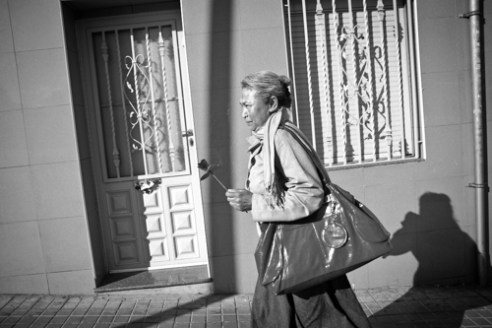This documentary photography was submitted to Edge of Humanity Magazine by Photographer Lena Mucha.
Click on any image to see Lena’s gallery of projects and photographs.
From project “Rosalba” by Lena Mucha.
Rosalba is a Colombian woman who came to Spain in 2001 looking for a better future, leaving her family and Colombian civil war behind. Since then, in order to finance herself, she is living and working in Barcelona as a domestic employee, being one of around 570.000 workers in this sector in Spain.

Rosalbas spirit as a social leader and a woman committed to the improvement of her community led her contributing to Mujeres pa´lante, an association supporting migrant women in psycho-social, judicial and labor-law questions.

In 2009 Rosalba´s son was killed in Medellín. Due to a lack of finances she couldn´t go to his funeral. And it was not until July 2013 that she could afford to return to Colombia to exhume his body and say farewell.

In 2014, after almost 15 years living in Spain, Rosalba finally got the Spanish nationality, meaning not just the formalization of her status in Spain, but also a recognition of her work and efforts.
Besides, or precisely because of Rosalbas difficult and challenging past in Colombia and Spain, she is a women full of hope, strength and trust in life and God. Rosalba´s story is not just about her condition as a migrant women in one of the worst crisis hit countries like Spain. It is about her experiences she had lived, her spirit as a leader and the way she confronts life every day.

A report presented by the ILO in 2013, says that the number of domestic employees in Spain has duplicated in the last 15 years, being the European country with the highest number of workers in this sector. 60% of these workers are migrants and the majority of them are women. Although the ILO adopted the Convention 189 in 2011 – recognizing for the first time in history the entitlement to decent work conditions in this sector – this remains unwritten in law. Working behind the closed doors of private households, the women still suffer from severe labor conditions, exploitation and unjust legislation.




See also:
By Lena Mucha



